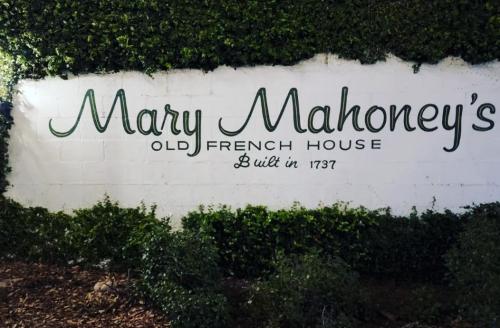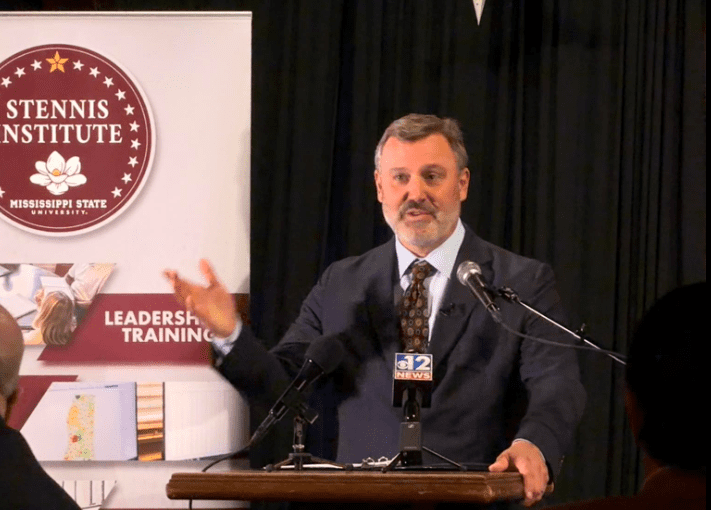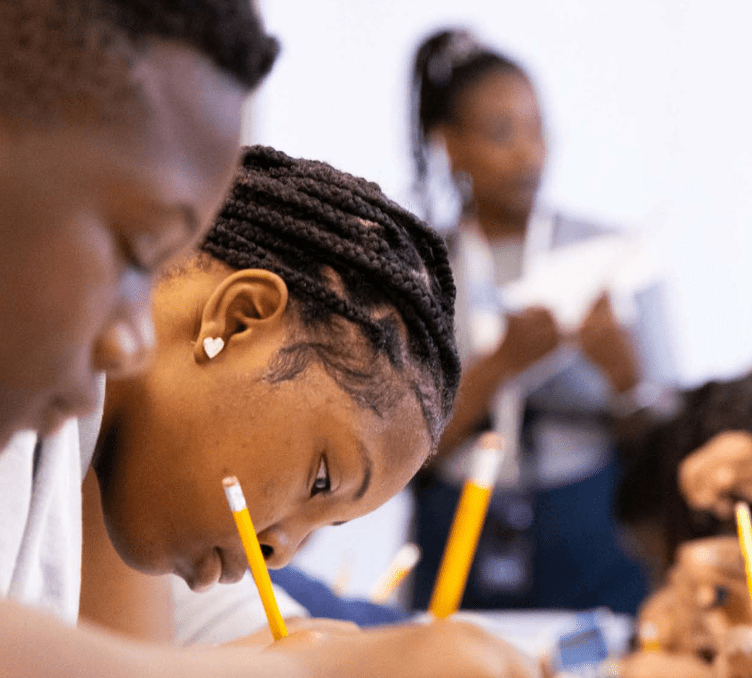
(Photo from MS Charter School Authorizer Board annual report)
- New national polling shows support for open enrollment increased to 75% with K-12 parents.
According to national polling conducted by yes. every kid. foundation., school choice is gaining popularity as more parents become dissatisfied with public education.
YouGov’s latest poll conducted just prior to the November 5th General Election at the request of yes. every kid. foundation. showed a majority of respondents – 68 percent – would like to end the practice of school districts assigning children to certain schools based on their home address. Support for expanding access to education savings accounts (63 percent) and the desire to access education tax credits (60 percent) were also high on respondents’ list of educational priorities.
The survey, which included responses from 1,000 people across the nation, is the second one conducted by the foundation, said Scott Foster, Director of Education Marketplace and Insights with yes. every kid. foundation.
The yes. every kid. foundation. polling shows support for open enrollment increased to 75 percent when the question was posed to parents of children in K-12 schools.
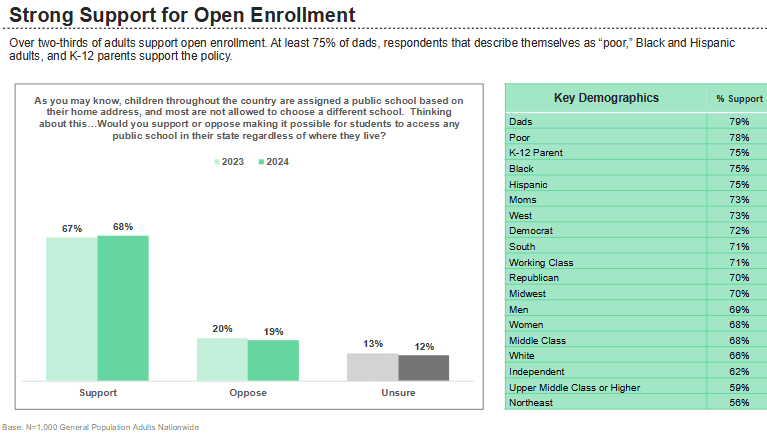
Parents of children attending a K-12 school make up about 25-30 percent of the nation’s population. Education polled as their second most important issue. Foster believes the topic should be a top priority for policymakers moving into the future.
“We believe that those closest to education, those most affected, most impacted by it, should be the ones making the decisions,” Foster stated during a virtual meeting this week. “And we have found through our research over the last few years most Americans agree with us.”
One of those decisions centers on how to use the money allocated for their child’s education, such as through Education Saving Accounts. In the survey, 63 percent of respondents indicated they support expansion of ESA programs.
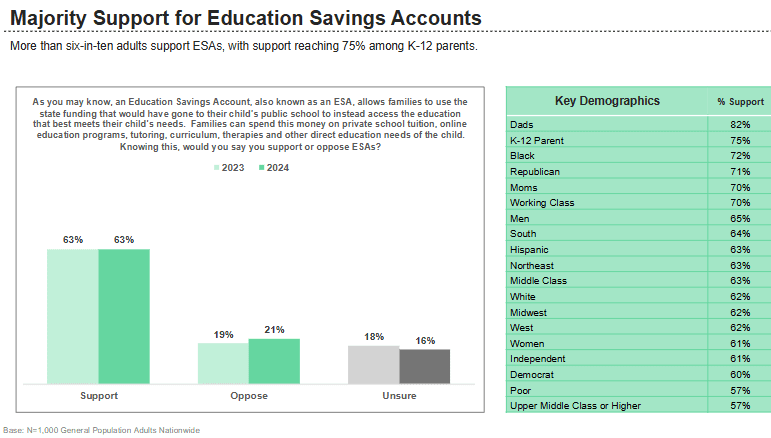
Education Savings Accounts, or ESAs, provide parents access to state funding set aside for the education of their child by a public school. Families can use that funding to offset the cost of tuition at the school of their choice or help pay for the supplies to homeschool their child. While ESAs provide parents with access to state funding, local funding through ad valorem collections and federal funding set aside for the child still goes to the respective school district.
Foster reported that 53 percent of respondents in the survey believed ESAs would improve the education system, while 19 percent said the change would weaken it.
One of the other findings in the yes. every kid. foundation. polling is that most Americans view the current education system as too rigid to meet the needs of every child. Only 33 percent of respondents said there is enough flexibility in their child’s current education.
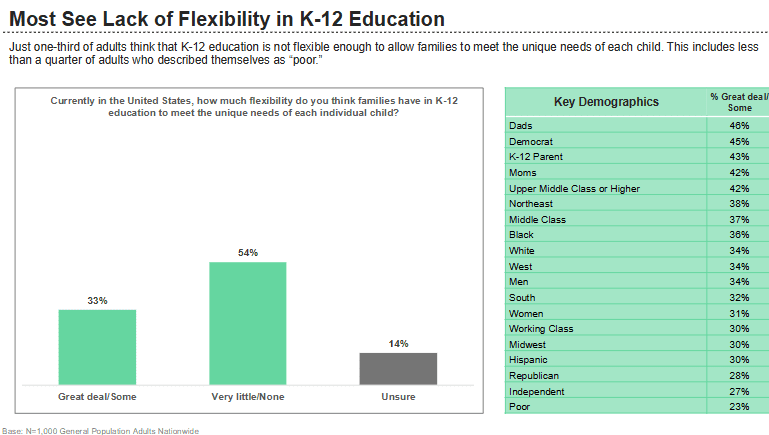
School choice and Mississippi
The move towards expanded school choice in the Magnolia State has been slower than advocates would like. Yet, with universal school choice made part of the Republican Party’s platform during the recent GOP Convention, there is new hope among supporters that lawmakers in Mississippi will seek to pass legislation that does not restrict a child to a failing school based on where they may live.
As previously reported by Magnolia Tribune, Mississippi Speaker of the House Jason White (R) has said that he expects multiple bills filed and pushed in the House designed to provide additional educational opportunities for Mississippi’s parents and students “surrounding portability and transfer freedom between public school districts according to the students’ needs” during the 2025 session.
“I believe these policies will not only improve our educational success but create a thriving class of students and schools today and bolster a revitalized workforce in Mississippi’s future,” Speaker White said. “It’s what our kids deserve, and it’s what parents and taxpayers are beginning to demand in our state.”
Opponents, such as Nancy Loome with The Parents Campaign, have labeled education freedom proponents as anti-public school while contending that choice largely benefits the wealthy while supporting a migration to private schools. Detractors of school choice also cite the potential for a decline in educational accountability.
However, previous research by yes. every kid. foundation. has revealed a shift in the perception that testing equates to accountability.
Matt Frendewey, Vice President of Strategy, said parents have indicated that they feel misled about the actual accountability state testing provides, especially when they perceive no one is being held accountable when scores decline.
“We made a mistake in the education space by saying academic testing equals accountability,” Frendewey added. “Parents value knowing how well their child is doing, but they increasingly see through the idea that that sort of assessment equals accountability.”
To Frendewey, the best method to increase accountability is by increasing competition. When there are more paths for parents to educate their child, they will choose the one that is best for them.
“We see this in all aspects of life,” Frendewey said.
Mississippi does have an existing program similar to the more traditional form of ESAs, called Education Scholarship Accounts, but the program has limitations for those students with disabilities.
“It is a program designed to give those parents with special needs children the option of withdrawing their child from the public school system and receiving a designated amount of funds to help defray the cost of private school tuition or other specific allowable activities to educate their child,” the Mississippi Department of Education explains.
As lawmakers return to the state Capitol on January 7, 2025, Magnolia Tribune will be tracking bills filed related to school choice and potential change to Mississippi’s education system.





